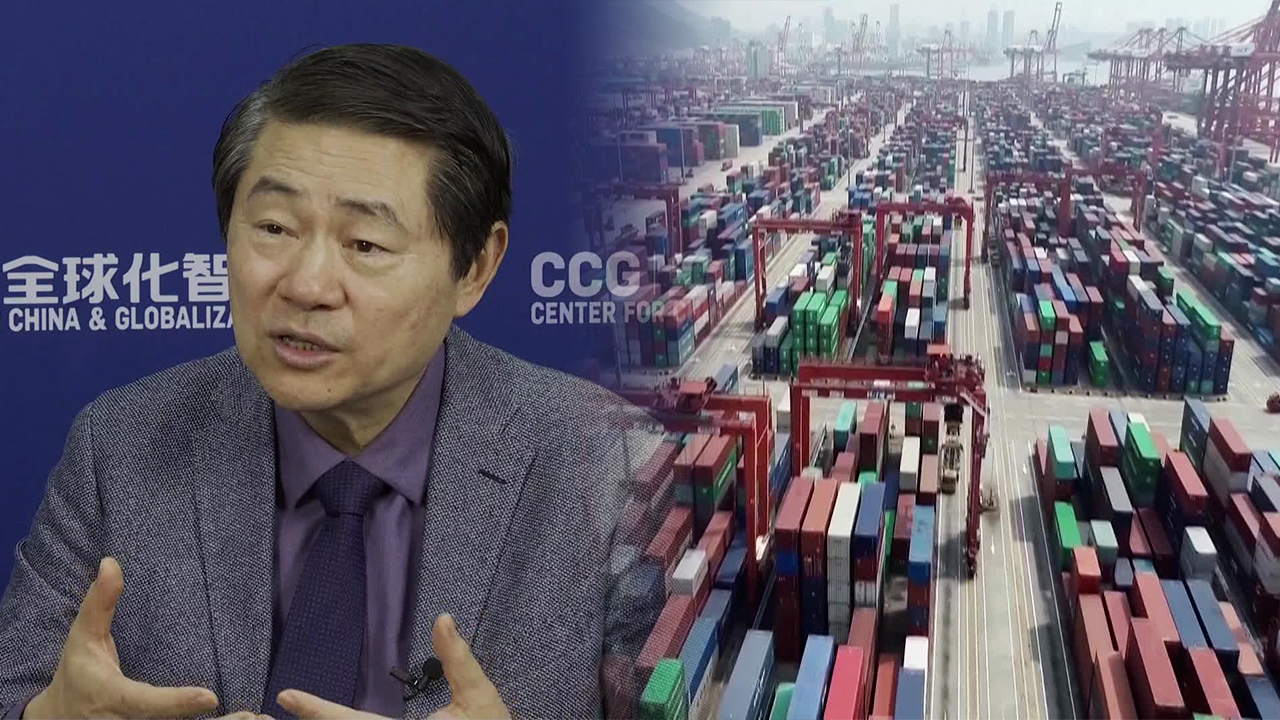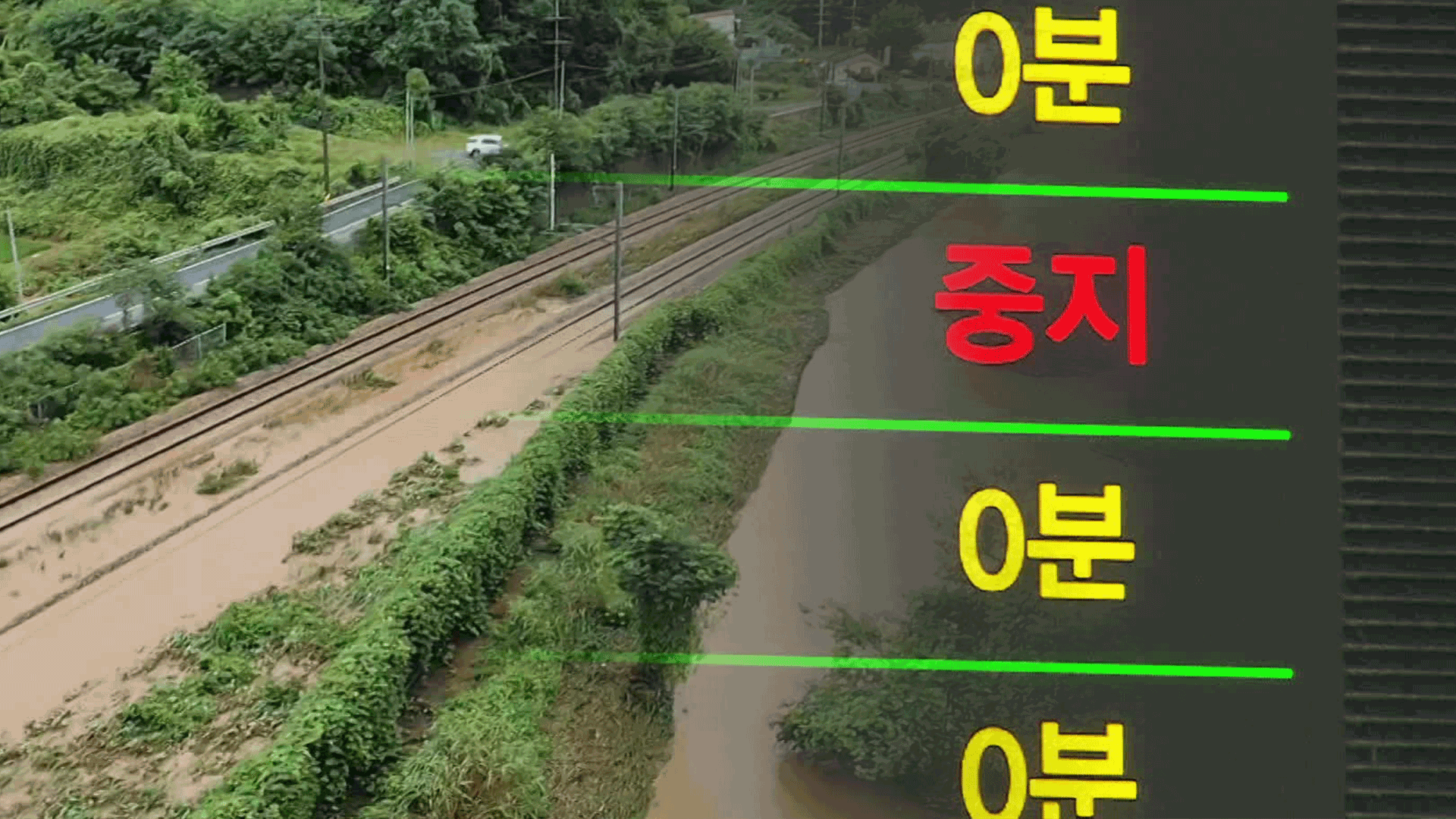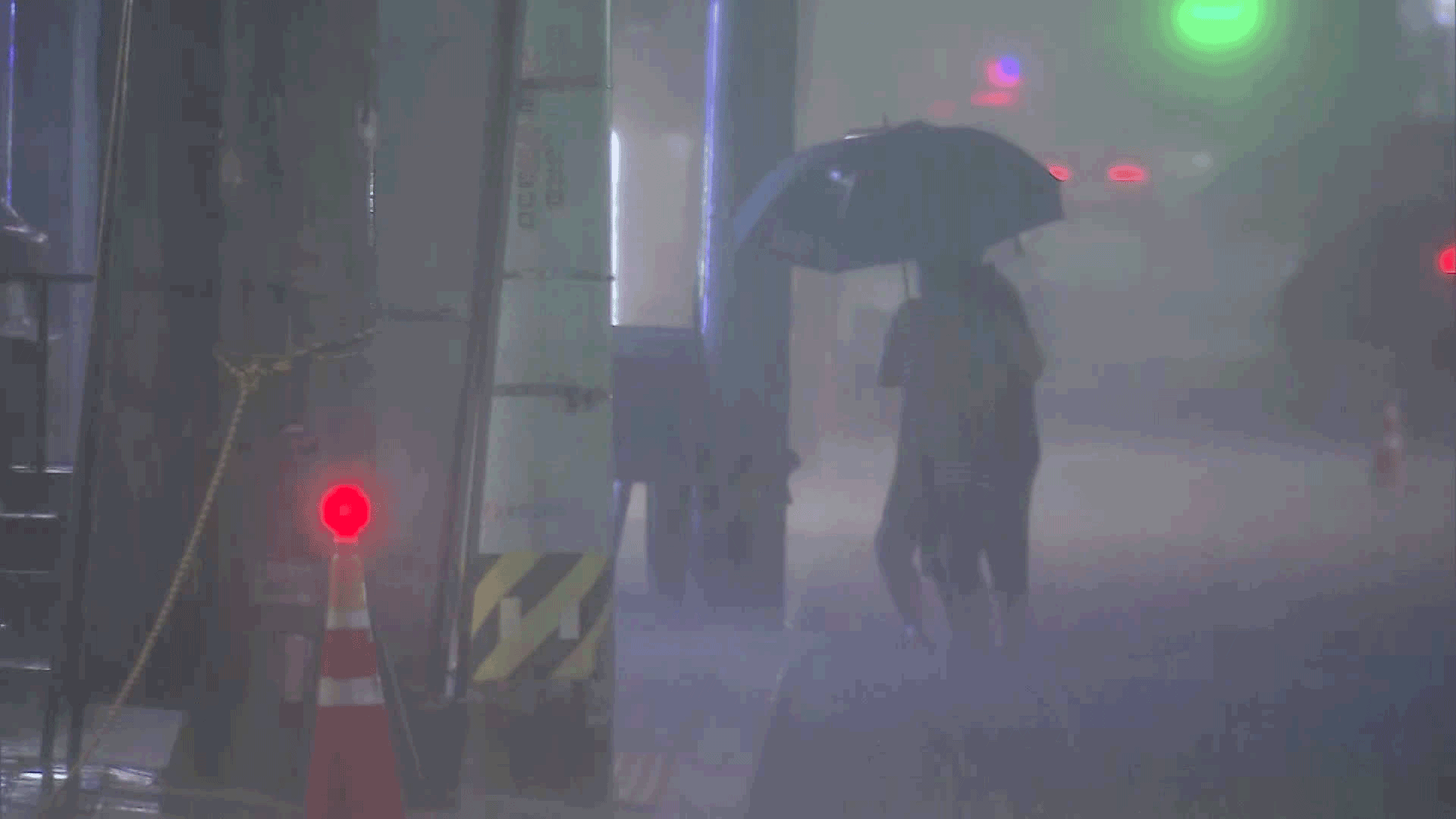China braces for economic impact of Trump's tariff threats
입력 2025.01.02 (00:08)
읽어주기 기능은 크롬기반의
브라우저에서만 사용하실 수 있습니다.
[Anchor]
The country that is most anxious ahead of the launch of Trump's second administration is likely to be China.
This time, we go to Beijing
Reporter Kim Min-jung, does China really believe that a 60% tariff will be imposed as declared by President-elect Trump?
[Report]
The general view among experts in China is that the 60% tariff is the starting point for negotiations.
They believe that Trump will seek a consensus through negotiations, showing flexibility and engaging in dialogue.
However, if the U.S. uses tariffs as leverage and intensifies its pressure policy against China, the Chinese economy, which has relied on exports, will inevitably suffer.
President Xi Jinping's emphasis on China's achievements and its status as a great power in this year's New Year speech can be interpreted as a call for national unity amid internal economic crises and external pressures against China.
China is hastening its preparations to mitigate economic damage.
They are actively injecting money into the market and encouraging consumption, focusing on boosting domestic demand.
[Wang Huiyao/Chairman of China Think Tank CCG: "I believe that the Chinese government's macro-control ability is excellent. The Chinese economy will not collapse or stagnate significantly."]
However, despite the policies of the Chinese authorities, consumers are still reluctant to open their wallets, leading to skepticism about whether the economy can truly recover.
Some predict that the Chinese government may devalue the yuan in preparation for the U.S. tariff increase.
The U.S.-China trade war could also have repercussions for South Korea.
If China's exports to the U.S. decrease, our companies' exports to China could also suffer a chain reaction, and if Chinese companies aggressively penetrate markets in Southeast Asia, the position of Korean firms will become more difficult.
The country that is most anxious ahead of the launch of Trump's second administration is likely to be China.
This time, we go to Beijing
Reporter Kim Min-jung, does China really believe that a 60% tariff will be imposed as declared by President-elect Trump?
[Report]
The general view among experts in China is that the 60% tariff is the starting point for negotiations.
They believe that Trump will seek a consensus through negotiations, showing flexibility and engaging in dialogue.
However, if the U.S. uses tariffs as leverage and intensifies its pressure policy against China, the Chinese economy, which has relied on exports, will inevitably suffer.
President Xi Jinping's emphasis on China's achievements and its status as a great power in this year's New Year speech can be interpreted as a call for national unity amid internal economic crises and external pressures against China.
China is hastening its preparations to mitigate economic damage.
They are actively injecting money into the market and encouraging consumption, focusing on boosting domestic demand.
[Wang Huiyao/Chairman of China Think Tank CCG: "I believe that the Chinese government's macro-control ability is excellent. The Chinese economy will not collapse or stagnate significantly."]
However, despite the policies of the Chinese authorities, consumers are still reluctant to open their wallets, leading to skepticism about whether the economy can truly recover.
Some predict that the Chinese government may devalue the yuan in preparation for the U.S. tariff increase.
The U.S.-China trade war could also have repercussions for South Korea.
If China's exports to the U.S. decrease, our companies' exports to China could also suffer a chain reaction, and if Chinese companies aggressively penetrate markets in Southeast Asia, the position of Korean firms will become more difficult.
■ 제보하기
▷ 카카오톡 : 'KBS제보' 검색, 채널 추가
▷ 전화 : 02-781-1234, 4444
▷ 이메일 : kbs1234@kbs.co.kr
▷ 유튜브, 네이버, 카카오에서도 KBS뉴스를 구독해주세요!
- China braces for economic impact of Trump's tariff threats
-
- 입력 2025-01-02 00:08:03

[Anchor]
The country that is most anxious ahead of the launch of Trump's second administration is likely to be China.
This time, we go to Beijing
Reporter Kim Min-jung, does China really believe that a 60% tariff will be imposed as declared by President-elect Trump?
[Report]
The general view among experts in China is that the 60% tariff is the starting point for negotiations.
They believe that Trump will seek a consensus through negotiations, showing flexibility and engaging in dialogue.
However, if the U.S. uses tariffs as leverage and intensifies its pressure policy against China, the Chinese economy, which has relied on exports, will inevitably suffer.
President Xi Jinping's emphasis on China's achievements and its status as a great power in this year's New Year speech can be interpreted as a call for national unity amid internal economic crises and external pressures against China.
China is hastening its preparations to mitigate economic damage.
They are actively injecting money into the market and encouraging consumption, focusing on boosting domestic demand.
[Wang Huiyao/Chairman of China Think Tank CCG: "I believe that the Chinese government's macro-control ability is excellent. The Chinese economy will not collapse or stagnate significantly."]
However, despite the policies of the Chinese authorities, consumers are still reluctant to open their wallets, leading to skepticism about whether the economy can truly recover.
Some predict that the Chinese government may devalue the yuan in preparation for the U.S. tariff increase.
The U.S.-China trade war could also have repercussions for South Korea.
If China's exports to the U.S. decrease, our companies' exports to China could also suffer a chain reaction, and if Chinese companies aggressively penetrate markets in Southeast Asia, the position of Korean firms will become more difficult.
The country that is most anxious ahead of the launch of Trump's second administration is likely to be China.
This time, we go to Beijing
Reporter Kim Min-jung, does China really believe that a 60% tariff will be imposed as declared by President-elect Trump?
[Report]
The general view among experts in China is that the 60% tariff is the starting point for negotiations.
They believe that Trump will seek a consensus through negotiations, showing flexibility and engaging in dialogue.
However, if the U.S. uses tariffs as leverage and intensifies its pressure policy against China, the Chinese economy, which has relied on exports, will inevitably suffer.
President Xi Jinping's emphasis on China's achievements and its status as a great power in this year's New Year speech can be interpreted as a call for national unity amid internal economic crises and external pressures against China.
China is hastening its preparations to mitigate economic damage.
They are actively injecting money into the market and encouraging consumption, focusing on boosting domestic demand.
[Wang Huiyao/Chairman of China Think Tank CCG: "I believe that the Chinese government's macro-control ability is excellent. The Chinese economy will not collapse or stagnate significantly."]
However, despite the policies of the Chinese authorities, consumers are still reluctant to open their wallets, leading to skepticism about whether the economy can truly recover.
Some predict that the Chinese government may devalue the yuan in preparation for the U.S. tariff increase.
The U.S.-China trade war could also have repercussions for South Korea.
If China's exports to the U.S. decrease, our companies' exports to China could also suffer a chain reaction, and if Chinese companies aggressively penetrate markets in Southeast Asia, the position of Korean firms will become more difficult.
-
-

김민정 기자 mjnews@kbs.co.kr
김민정 기자의 기사 모음
-
이 기사가 좋으셨다면
-
좋아요
0
-
응원해요
0
-
후속 원해요
0















이 기사에 대한 의견을 남겨주세요.